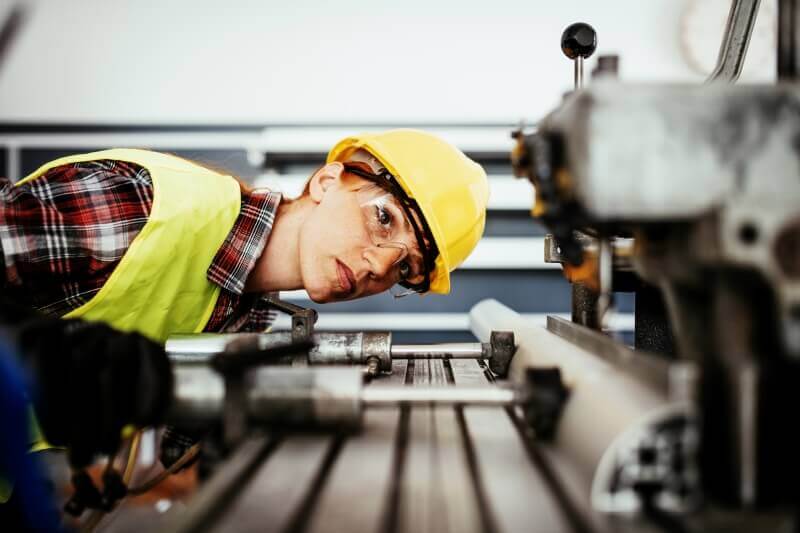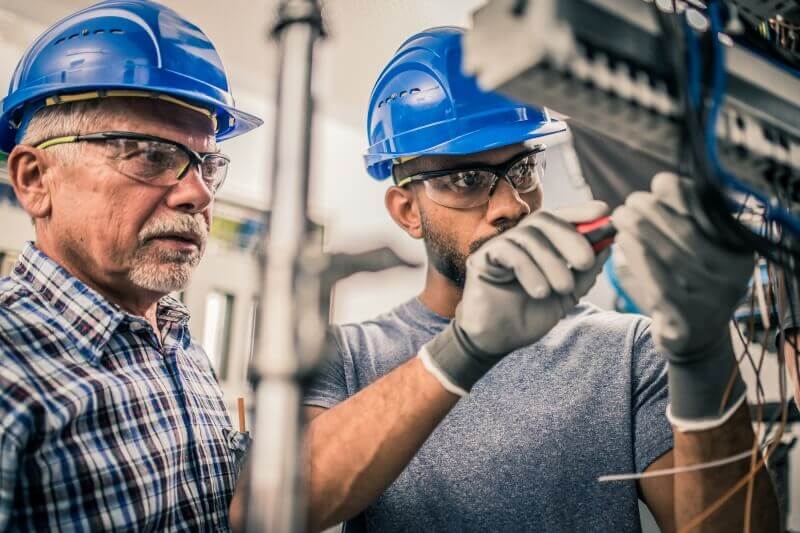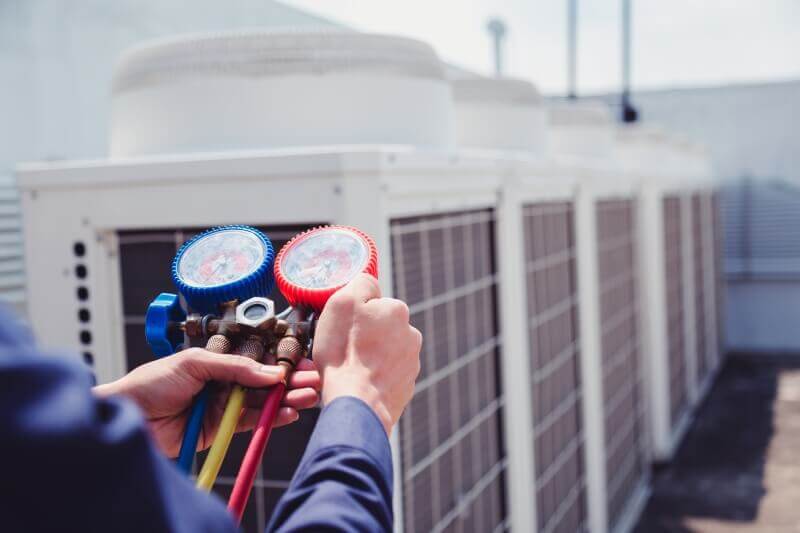In-demand Jobs Spotlight – Careers In Maintenance

The world needs more people to maintain the machines and buildings that make manufacturing and distribution possible. If you have the interest and skills, now is a great time to start or switch to a career in equipment or facility maintenance.
Aerotek Director of Strategic Sales Stanley Johnson has spent nearly 20 years finding the skilled professionals that can keep equipment running and the facilities that house them pristine. Recently, he has noticed a strong demand for three maintenance skill sets in particular: maintenance mechanics, maintenance electricians and facilities mechanics.
These three disciplines are closely related. Knowing the details of each can help you decide which is the best career for you to pursue. We’ve created a quick breakdown of each job and why the demand for workers with these skills is increasing.

Maintenance Mechanics
Entry Level Educational/Certification Requirements:
High school diploma or equivalent.
Similar Job Titles:
Maintenance Technician
Industrial Maintenance Mechanic
What They Do:
Equipment powered by air (pneumatics) or liquid (hydraulics) require routine inspections and repairs by maintenance mechanics. Conveyor belt systems, elevators and other production equipment need to be on a preventative maintenance schedule to ensure the company can keep their operations running smoothly. Maintenance mechanics troubleshoot this equipment — helping to determine when to clean, repair or replace parts. They also may play a major role in the instillation of new machinery.
See our previous blog on how maintenance mechanics can find the best jobs.
Why They Are In Demand:
There are several reasons why employers are aggressively searching for maintenance mechanics. Like other skilled trades, the mechanics who are the most experienced are retiring. This creates a skills gap that companies need to fill quickly to prevent production delays and lost revenue. Another reason is that manufacturing has become more advanced.
“Companies and machines are getting more sophisticated because they’ve found different ways to produce a product quickly and more efficiently. So now companies must manage more machines,” says Johnson.

Maintenance Electrician
Entry Level Educational/Certification Requirements:
High school diploma and completion of a certifying training program or apprenticeship. Certification requirements vary by state.
Similar Job Titles
Industrial Electrician
Maintenance Mechanic/Electrician
What They Do:
Maintenance electricians and maintenance mechanics share similar duties, but electricians focus on troubleshooting, installing and maintaining the electro-mechanical elements used in manufacturing. This may include maintaining actuators, programming logic controllers (PLC), repairing scales and understanding the voltage of specific equipment.
It’s common practice for companies to hire someone who can perform the duties of a maintenance mechanic and electrician, but Johnson explains that trend could be losing popularity.
“Someone who is good mechanically can learn electrical skills and vice versa, but sometimes similar job duties require vastly different degrees of expertise,” Johnson says. “This is becoming truer especially as machines get more sophisticated.”
Why They Are In Demand:
Employment for electricians is forecasted to grow 9% from 2020 to 2030. Much of the projected growth can be attributed to an expected increase of experienced electricians retiring. Companies will need to address this skills gap in their workforce to prevent production delays and remain competitive.
Another factor driving demand is that manufacturing companies are investing heavily in automation to be more efficient to keep up with competition and reduce costs. “With more automation, companies need a more robust and sophisticated maintenance team,” says Johnson.

Facilities Mechanics
Entry Level Educational/Certification Requirements:
High school diploma or equivalent.
Similar Job Titles
Facilities Technician
Facilities Maintenance Mechanic
What They Do:
Maintenance electricians and mechanics repair the equipment within a building —a facilities mechanic maintains the building itself. Tasks like painting, carpentry and HVAC repair are common duties for a facilities mechanic. It’s an ideal job for people who like to have skills across various disciplines.
“They can be a jack-of-all-trades. Someone who's not an expert and may not have the certificates needed to be a master carpenter or HVAC professional. But they have some basics skills in various areas and know enough to fix the problem or they can determine when a specialist needs to be contacted,” says Johnson.
Why They Are In Demand:
Facilities mechanics may not repair the equipment directly related to production, but their skills are needed to keep the buildings that house manufacturing equipment in operating condition. Companies are creating more facilities to respond to consumer demand and shorten delivery time. New buildings are major investments and facilities mechanics play an important role in keeping the property pristine.
Businesses are investing in new technology and building new facilities to respond to surging consumer demand and supply chain challenges. Now is a great time to consider entering or switching to the maintenance careers that are responsible for protecting these investments.
If you’re interested in discovering maintenance jobs in your area, click the “Browse Available Jobs” button below.
